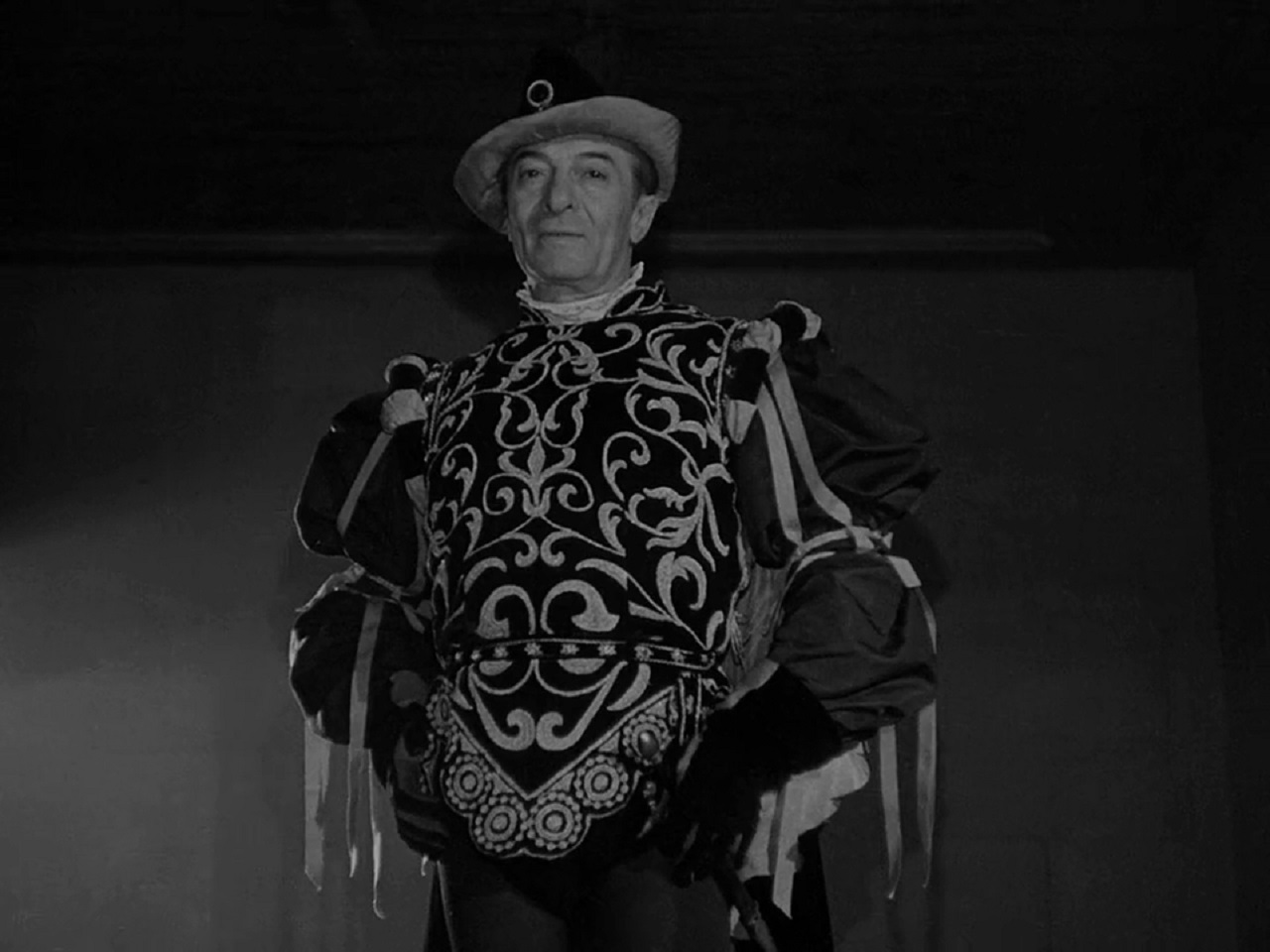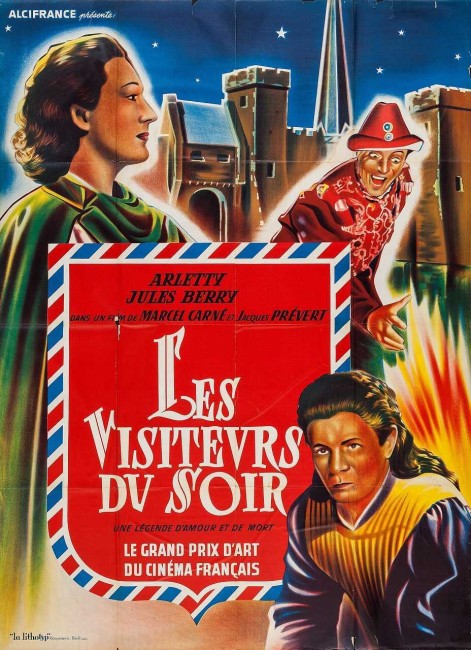(Les Visiteurs du Soir)
France. 1942.
Crew
Director – Marcel Carne, Screenplay – Pierre Cavoche & Jacques Prevert, Producer – Andre Paulve, Photography (b&w) – Roger Hubert, Music – Joseph Kosma & Maurice Thiriet, Art Direction – Alexandre Trauner & Georges Wakkevitch. Production Company – Andre Paulve.
Cast
Jules Berry (The Devil), Alain Cuny (Gilles), Marie Dea (Anne), Arletty (Dominique), Fernand Ledoux (Baron Hugh), Marcel Herrand (Renaud)
Plot
Two wandering minstrels, Gilles and Dominique, arrive at the castle of the Baron Hugh just as the Baron announces the engagement of his daughter Anne to the knight Renaud. However, Gilles and Dominique have sold their souls to The Devil and have been charged with travelling throughout the land and tempting mortals into damnation by causing them to fall in love with them. Dominique causes both Renaud and Hugh to fall for her. Meanwhile, Gilles seduces Anne but then falls for her himself. And so The Devil arrives in person to visit a cruel punishment on the two lovers.
This French fable about Mediaeval love and betrayal was originally written as a metaphor for the then Wartime German occupation of France. The metaphor was considerably diluted by the time The Devil’s Envoys reached the screen due to production interference but it does make for some interesting analogies. The cruel and sadistic Devil obviously stands in for Hitler with the French somewhat self-servingly painting themselves as the pure-hearted innocents. All of this is ambiguous enough that it never becomes overt but does make for interesting subtextural reading. Equally so, The Devil’s Envoys also works well as a fable about true love transcending all else without any necessary political reading.
The story borrows an undeniable leaf from Faust. The film’s juggling of virtue, pure-hearted innocence, betrayal, diabolic traps that force innocents into soul-selling sacrifices for their lovers, and, most importantly, love that is seen as a pure force above all else, has a wonderful classical splendour to it.

When it comes to magic, director Marcel Carne emphasises a cinematic simplicity – in stop-frame, he makes a homely woman look beautiful; he freezes a line of dancers and allows people to step outside time; and has The Devil, with a series clever camera set-ups, able to appear in several places at once – and as a result achieves a magic that many films with vast and more elaborate special effects do not.
The cast all give fine performances. Alain Cuny has a wonderfully chiseled handsomeness but is more animated than one might think and turns the perfection of his features towards pained outpourings of love – in fact, he seems so pure it is hard to imagine him capable of being the diabolical wooer of hearts the script paints him as. He is well paired up against the elegantly aloof Arletty.
Director Marcel Carne was probably best known for the much celebrated classic Les Enfants du Paradis (1945). Carne later returned to fantasy cinema with the H.G. Wells adaptation La Merveilleuse Visite/The Marvellous Visit (1975) about the appearance of an enigmatic angel.
Trailer here


